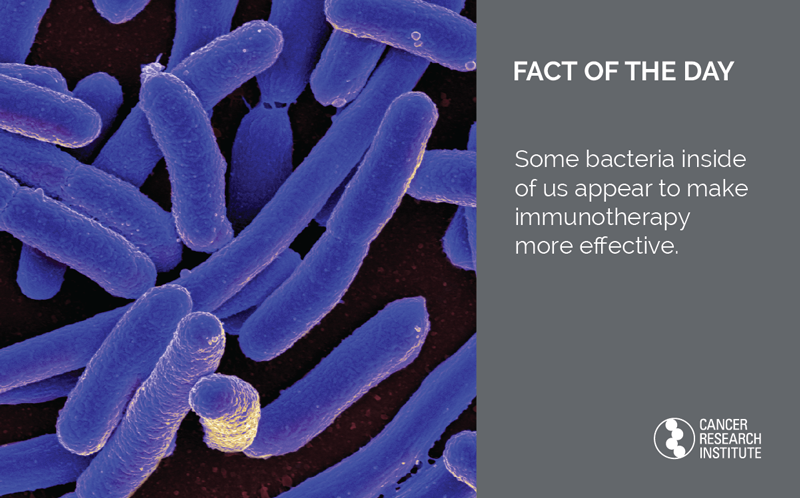
Some bacteria inside of us appear to make immunotherapy more effective.
Trillions of bacteria reside in a person’s intestinal tract, and they perform several important duties, most notably helping with digestion. More recently, the influence of the microbiome—all of a person’s bacteria—on both the immune system and cancer has come to be better understood and appreciated, and represents a promising avenue for improving our ability to treat as well as prevent cancer.
In our intestines, the balance between “good” and “bad” bacteria, and their interactions with the immune system, are especially important for tissue health. Certain bacteria and the toxins they produce are associated with biofilm formation, inflammation, and the development of colorectal cancer (CRC). Research being conducted in this area could help improve our ability to prevent CRC.
In addition to the role bacteria play in the formation of cancer in our intestines, they also appear to influence our immune system’s ability to eliminate tumors, no matter where they are in the body. Recent work involving James P. Allison, Ph.D., and Padmanee Sharma, M.D., Ph.D., showed that in checkpoint immunotherapy-treated patients with metastatic melanoma, different bacterial species were found in the patients who responded compared to those who didn’t respond to the treatment.
Last but not least, bacteria can also be used as treatments themselves that stimulate the immune system against cancer. In addition to BCG (a tuberculosis vaccine that is approved for bladder cancer) and CRS-207 (a modified bacteria being evaluated for several types of cancer) let’s not forget that Dr. William B. Coley’s first immunotherapy also involved bacteria.
The following CRI-funded scientists are working to understand the relationship between bacteria, the immune system, and a variety of cancers, to aid the development of improved strategies for patients:
Image credit: Adapted from National Institute of Allergy and Infectious Diseases (NIAID)